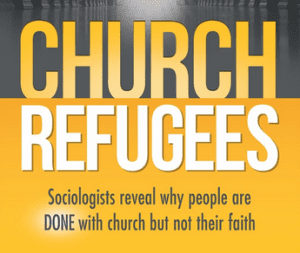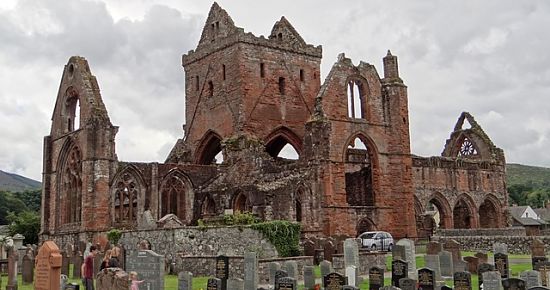When I was in college I heard John Stott speak at Calvin Theological Seminary. During his talk he spoke about the distinction between some Christians fussing about “micro” ethics while ignoring “macro” ethics, and he talked about movie going and drinking a beer vs. justice and poverty and economic exploitation. Jesus, as you know, talked like this once in Matthew 23 in using the image of straining out a gnat while swallowing a camel whole. Either way, the point remains: sometimes churches are more known for “policing morality than working to counteract entrenched structural barriers, especially with regard to poverty” (99). That is, the church is concerned with sex and substances but not economics.
I would contend already that (1) the concern and complaint are both deadly accurate at times while (2) the solution through political agitation may well be the worst way to change the systemics.
 In their book Church Refugees, Josh Packard and Ashleigh Hope get into this theme in the 5th chp, “Meaningful Ministry and Moral Prescription.” Overall, church refugees think church leaders and churches want to control them rather than encourage them, help them, and empower them. This, the authors want to bring to the fore, is not about alcohol — no one left church so he or she could drink — or about sex outside of marriage — the church refugees did not want that either. Rather, they thought the church’s focus was distorted and myopic.
In their book Church Refugees, Josh Packard and Ashleigh Hope get into this theme in the 5th chp, “Meaningful Ministry and Moral Prescription.” Overall, church refugees think church leaders and churches want to control them rather than encourage them, help them, and empower them. This, the authors want to bring to the fore, is not about alcohol — no one left church so he or she could drink — or about sex outside of marriage — the church refugees did not want that either. Rather, they thought the church’s focus was distorted and myopic.
The issue is personal morality vs. social or group morality. The issues are poverty, racism and gender inequality (100).
Arbitrary legalisms.
This theme among church refugees is about church as a community, about a radar tuned into institutional hypocrisy and myopia, and a zeal for activistic solutions to systemic issues. Telling the story of one woman as paradigmatic, they write of her:
What she wanted, and what nearly all of our respondents wanted, was for the church to leverage its organizational resources and infrastructure to get more things done outside of the church walls and to build community. Again, our respondents weren’t done with church because they disagreed with their churches’ theology or because they disliked the people. These are the reasons people switch churches. People opt out of organized religion altogether because they think the structure is fundamentally flawed (104).
I confess here that as I read this I think the church refugees are political activists who don’t like it that their church is not committed to their kind of activism. I’m thinking aloud and I could be wrong, but this theme continues to emerge in this book. Leading me back to a question asked earlier: What is a church? Is it a rally? A fellowship? A new kind of social organism that provides an alternative to the world?
Naturally, homosexuality emerges as an issue with moral policing. That is, why is this Item #1? I would want to ask back this question: Who made homosexuality Item #1 in the church and social debates? The proponents for same-sex marriage or the opponents? I think this is a fair question: On this item has the church been the aggressor or the respondent? Perhaps the answer is that it is dialectical and that both sides on this debate feed off the other.
In the end, Packard and Hope profile the church refugees as doers, as activists, who find churches ineffective.
Is it fair to ask this: Are church refugees described here political activists who do not find their churches politically active enough?











